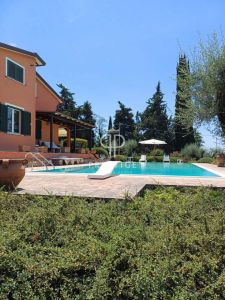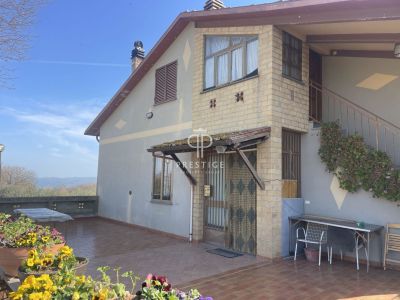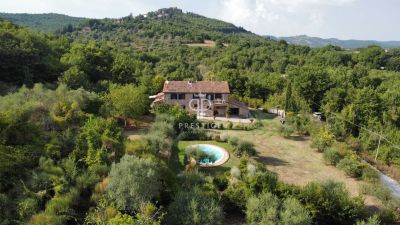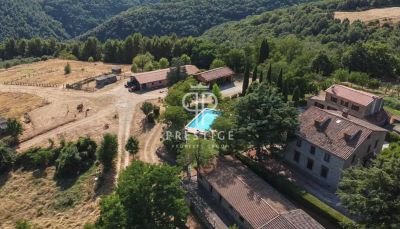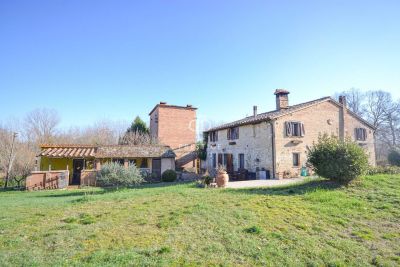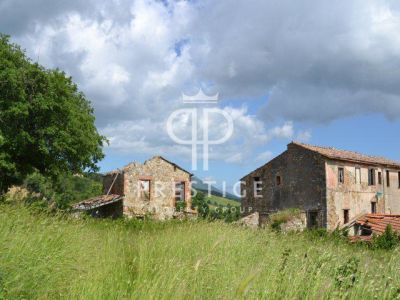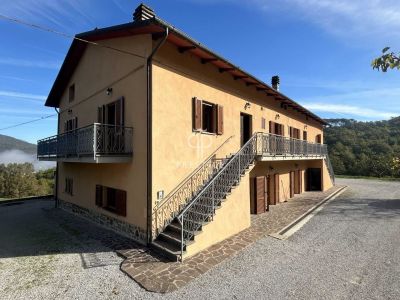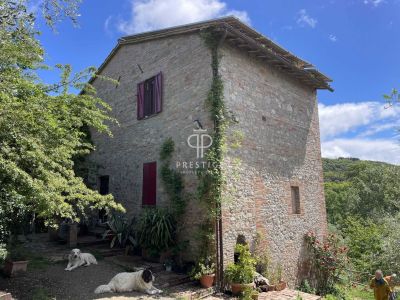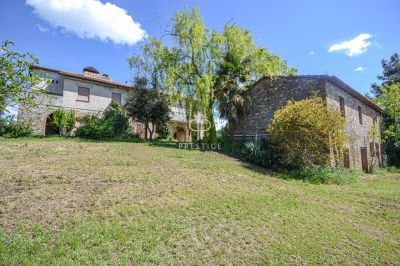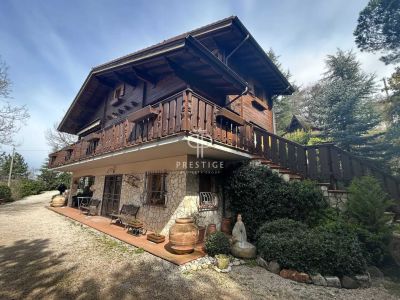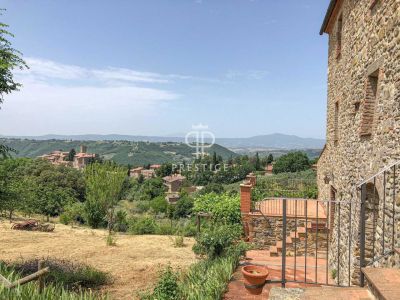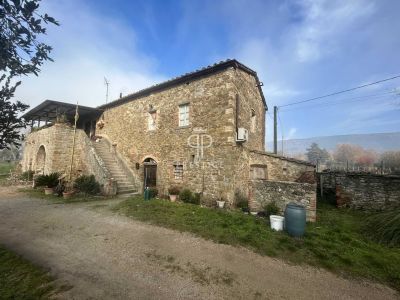Umbria Property
Area Guide
Wander through the narrow cobbled streets of Perugia’s historic centre filled with fine Etruscan, Roman and medieval monuments before visiting the Palazzo dei Priori – one of Italy’s finest Gothic palaces – and home to a superb gallery of Umbrian and other art spanning several hundred years; take a gentle stroll along the shores of Lake Trasimeno to spot wildlife such as wild ducks, cormorants, kites and kingfishers before enjoying a lunch of locally caught fresh fish washed down with a chilled glass of local Grechetto wine; immerse yourself in the annual arts festival in Todi –combining art exhibitions and seminars with opera, orchestral and other musical events from mostly local and regional performers there is something to appeal to everyone. Located in the centre of Italy with excellent links to the international airports of Florence, Pisa and Perugia, Umbria property is increasingly being sought after by international investors wishing to own their own piece of undiscovered Italy.
Often referred to as “the green heart of Italy”, Umbria borders the southern side of Tuscany to the west, Le Marche to the east and the regions of Lazio and Abruzzo to the south. A landscape of gently rolling hills, lush green olive groves and wildflower meadows with medieval hill top towns bursting with fine churches, narrow cobbled streets and piazzas, Umbria is an unspoilt land of space and tranquillity.
Umbria property has been popular with foreign investors for over thirty years when the first visitors came in search of property which was then cheaper than its more expensive neighbour – Tuscany, although today Umbria property prices are comparable. Umbria property is incredibly diverse depending on your style and budget; from old stone farmhouses nestling in olive groves and in need of renovation, luxurious villas with swimming pools and panoramic views of the surrounding countryside to traditional townhouses off narrow cobbled streets in medieval hill top towns. Umbria property has some of the strongest holiday rental prospects in Italy; the region is very popular with foreign holidaymakers and property near to Assisi and Perugia will attract year-round rental income from Catholic pilgrims and students and tourists.
The three most attractive rural areas in which to buy Umbria property are the Upper Tiber valley in the far north and the Lake Trasimeno area in the west, which are both well situated for Perugia and the Vale of Spoleto in the region’s centre, which gives access to some of the region’s most beautiful hill towns such as Assisi.
Perugia is Umbria’s small and handsome capital perched on a hill above a valley through which the River Tiber swiftly runs; full of trendy boutiques and cafés the town’s historic centre is a maze of cobbled streets, arched stairways and bustling piazzas. The town’s student population of 30,000 gives Perugia a humming nightlife and every July the Umbria Jazz festival draws music enthusiasts from around the world. There is a wide range of Umbria property in and around the capital; a recently renovated light and airy two bedroom apartment with tall ceilings, wooden beams and terracotta tiled floors right in the heart of the town would cost in the region of €200,000 and at the other end of the price range a 5 bedroom restored stone farmhouse with panoramic views of Perugia and the hills and private swimming pool has a price tag of €2.5m.
There is also a good range of Umbria property around Todi – a small medieval town on a tall two-crested hill overlooking the east bank of the river Tiber and commanding distant views in every direction. Perhaps a luxuriously restored 5 bedroom traditional stone farmhouse perched on a hilltop in the rolling countryside near Todi with panoramic views of the surrounding land and valleys for €3.5m or if you have always wanted to own your very own castle then €4m would buy a restored medieval castle with its own amphitheatre and secluded swimming pool set in 2 hectares of garden.
The Vale of Spoleto also offers a good range of Umbria property for sale. Beautifully renovated stone villas with wonderful views of the countryside complete with swimming pools and terraces overlooking lush green gardens can be found for €350,000 to €500,000 depending on the number of bedrooms and locations. Or how about a secluded 8 bedroom villa with marble stairs, wooden floors and stone fireplaces and an infinity swimming pool with views of the valley below and the surrounding hills and mountains – yours for €1.65m.
A tranquil and peaceful region with picturesque medieval towns perched on hilltops surrounded by valleys of olive groves and rolling green hills, a richly spiritual and artistic heritage and a wonderful sense of community and kinship, the diverse range of Umbria property available provides investors with the perfect opportunity to buy property in the unspoilt ‘green heart’ of Italy.
Buying Real Estate in Italy
1. Making the Offer to Purchase (Offerta)
Once you have found the property you wish to purchase you will start the process by making a formal offer to the vendor, the estate agent will act on your behalf and put forward the offer, a deposit will be made available, generally around (10,000 - 20,000 EUR). Once the vendor has accepted the offer it will be formalised in writing to the vendor in both English and Italian. If this is accepted the deposit (Caparra Confirmatoria) will be paid to the vendor. This will form a legally binding contract. Neither party may withdraw at this point, the sale can be forced by either party or a claim for damages can be made. If the purchaser withdraws their deposit will be lost, if the vendor withdraws the purchaser can claim twice the deposit in compensation.
2. Signing the Preliminary Contract (Compromesso or Contratto preliminare)
The next step will take place between 1 and 3 months after the offer has been accepted, this is a formal agreement between the vendor and purchaser to sell and buy the property, this agreement is the Preliminary Contract and will contain the conditions and terms of the sale. It is important at this stage that you have a full understanding of all the details contained in the contract. We would strongly recommend that you appoint a Notary who is fluent in English. This document will include the purchase price, a detailed description of the property including completion date and will cover any obligations placed upon the buyer and the vendor. All information relating to the property including any planning permissions for the property and the cadastral details (a public record, survey, or map of the value, extent, and ownership of land as a basis of taxation). Once the Preliminary Contract (Contratto preliminare) has been signed a further deposit (Caparra Confirmatoria) will be paid, this will generally be 10% - 20% of the purchase price. There will also be an estate agents Commission Fee (Provvigione) which will need to be paid at this point.
3. Signing the Final Deed of Sale (Rogito or Atto Notarile)
The purchaser must have a bank account in order to make the purchase on completion. The signing of the final deed of sale which will authorise the transfer of the property must be overseen by a Notary (Notaio). The buyer will select and hire the Notary, but they are members of an independent body of public/professionals who will draft the purchase deed, they will oversee the passing of the title legally from the vendor to the purchaser. The Notary will also verify the legality of the documentation and registration with the Conservatoria dei Registri Immobiliari and the Local Land Register.
4. Formalities to be observed after Completion
Foreign buyers should obtain a certified copy of the Purchase Deed (Rogito), which the Notary will have lodged with the authorities. Generally this will be available to collect around 2 – 3 weeks after completion. The Notary will also give you a form to complete for the the local authority (Questura) who will have been given formal notice of the purchase. Your Notary will help you to complete this form. You will need to contact the utilities companies to set up new contracts (power, water, telephone, gas etc.). If the property is a flat, the condominium manager (Amministratore del condominio) should be informed of change of ownership of the property.
IMPORTANT - Disclaimer : All information provided is believed to be current and provided free of charge. No liability can be accepted for the reliability of the information and statements made as this is obtained from 3rd parties. We always recommend you take legal advice from a fully qualified Lawyer or Notary before buying a property overseas.